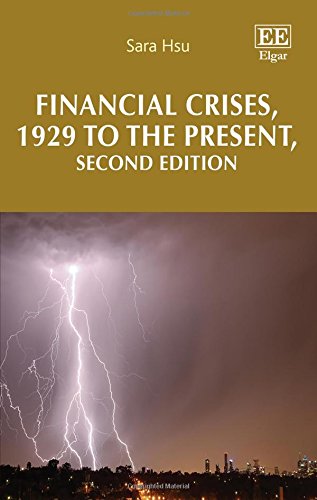

Most ebook files are in PDF format, so you can easily read them using various software such as Foxit Reader or directly on the Google Chrome browser.
Some ebook files are released by publishers in other formats such as .awz, .mobi, .epub, .fb2, etc. You may need to install specific software to read these formats on mobile/PC, such as Calibre.
Please read the tutorial at this link: https://ebookbell.com/faq
We offer FREE conversion to the popular formats you request; however, this may take some time. Therefore, right after payment, please email us, and we will try to provide the service as quickly as possible.
For some exceptional file formats or broken links (if any), please refrain from opening any disputes. Instead, email us first, and we will try to assist within a maximum of 6 hours.
EbookBell Team

4.7
66 reviewsHsu's thorough and ambitious survey begins with the Great Depression of 1929, the first crisis created within the institutions of our current financial system, and moves through the aftermath of the Depression in the 1930s and 1940s, the inter-crisis period of the 1950s through the 1970s, and the emerging market debt default crisis of the 1980s. From there, she tackles major crises in specific countries from the 1990s on, including those in Mexico, Asia (Thailand, Indonesia, South Korea and Malaysia), Russia, Brazil and Argentina, as well as the Great Recession of 2008. The book concludes with a chapter detailing insightful policy recommendations for preventing future crises.
Students and professors of economic history, financial and regulatory economics and banking will find this an invaluable resource, both for its comprehensive historical approach and its thoughtful look toward the future of the global economy.